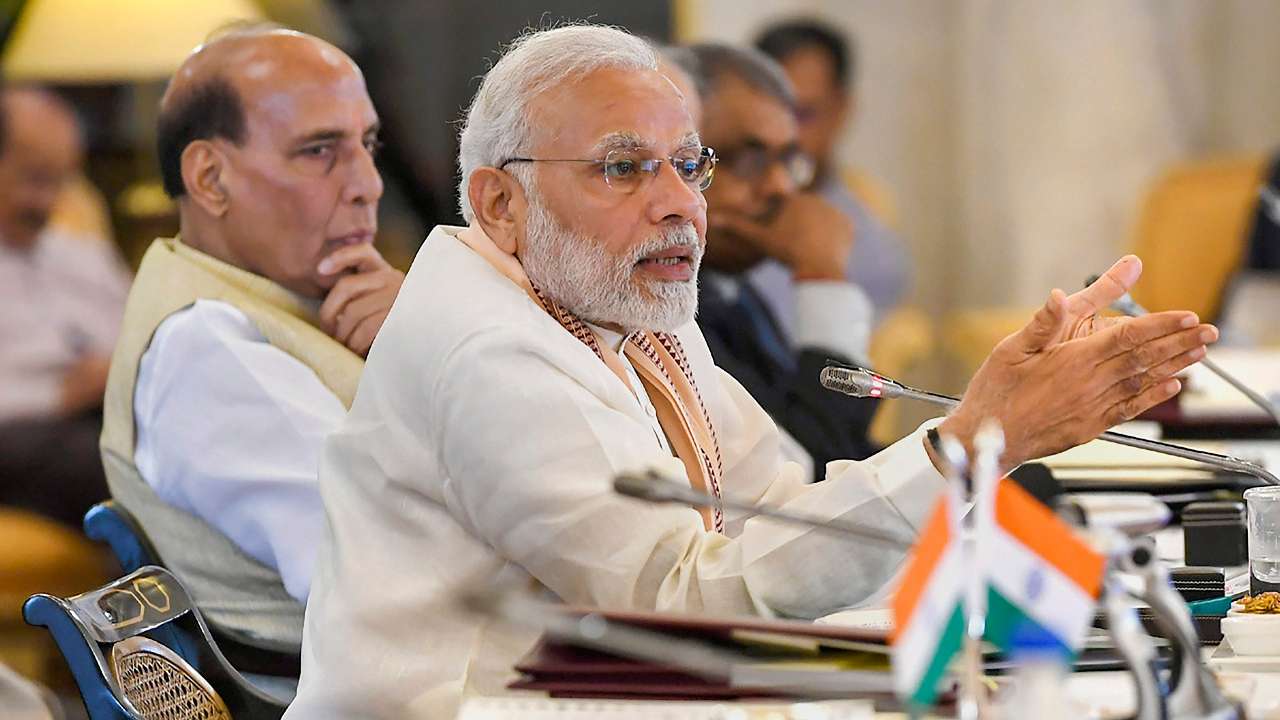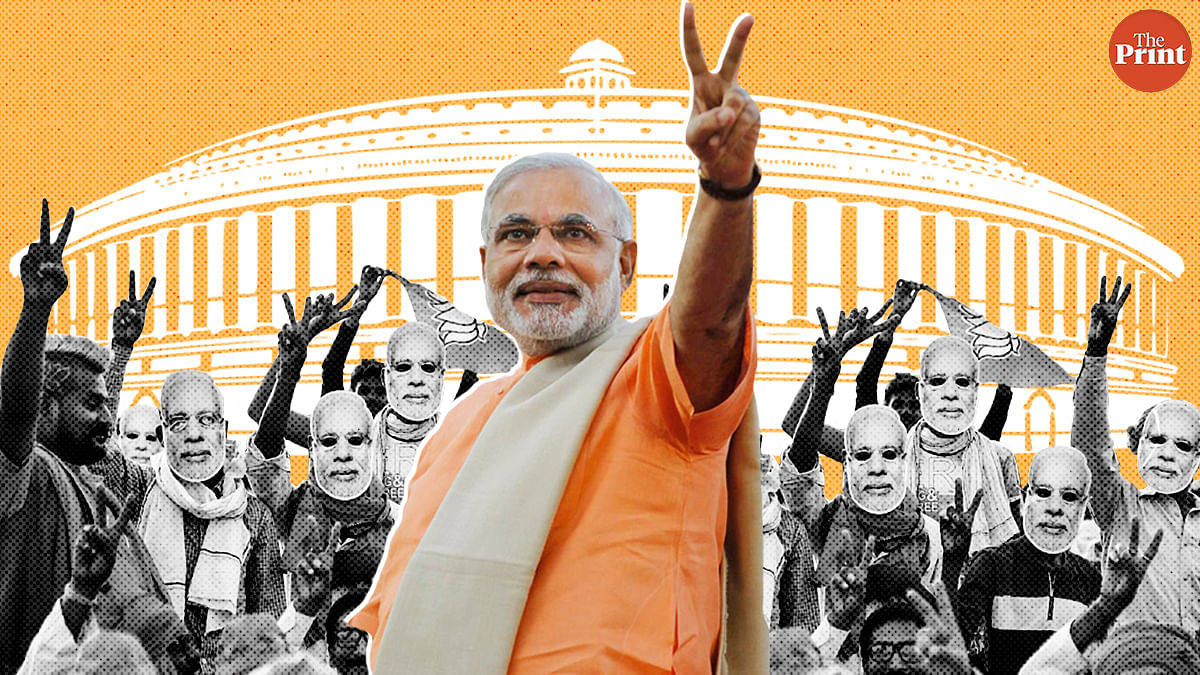Historians and AHA voices raise concern over Academic Freedom under attack in Modi’s India as it issues fresh guidelines on international webinars; is this the beginning of the end of freedom of expression?

Historians and AHA voices raise concern over Academic Freedom under attack in Modi’s India as it issues fresh guidelines on international webinars; is this the beginning of the end of freedom of expression?
Of late, a strong voice of dissent has gained momentum in the academic community and a number of scholars and intellectuals; this is due to the fresh set of guidelines issued by the Modi Government that hit at the core of academic freedom in India.
This subtle crackdown began as early as last year when leading scholar and author Anand Teltumbde was arrested in April 2020 after being accused of having links with Maoist rebels and conspiring against the government.
In the more recent crackdown, the Narendra Modi government last week had issued new guidelines restricting academic freedom.

Indian Universities, IITs, IIMs, and other such educational institutions, as well as the academic community – teachers, vice-chancellors, scientists, researchers, students, members of university senates, managements of affiliated colleges, and India’s intelligentsia in general as well as the government-funded educational institutions, are now required to get prior approval from the External Affairs Ministry for holding online sessions.
What this means in layman’s terms is that before holding online webinars and conferences, prior permission from the government is necessary.
The new guidelines are a massive and significant development with tremendous and severe consequences to the very core of democracy, education, and fundamental rights of scholars and intelligentsia in the country.

This “crackdown” has come in in the guise of an “office memorandum” on January 15 from an undersecretary, which is the junior-most bureaucrat in the Ministry of Education, and is innocently titled ‘Revised Guidelines for holding online/virtual conferences, Seminars, Training, etc..’
According to the fresh guidelines, the Subjects and the participants are both required by the MEA to be approved first.
The guidelines state that ‘public-funded universities, professors, and administrators will now have to get prior approval from the MEA if they want to hold online international conferences or seminars that are centered around issues and subjects that relate to the security of the Indian state or which are “clearly related to India’s internal matters.”
Imagine that every Indian scholar and administrations obtain prior permission under the new guidelines if they want to hold or convene online or virtual international conferences, seminars, and or training.
The Modi government’s move can perhaps be termed as the most significant attack on the autonomy of Indian universities since the independence of this country.
It should be understood clearly that as and when these new guidelines are fully enforced; and going by the Modi government’s recent escapades of handling issues, the Modi government will not leave any stone unturned to put these guidelines in place; it will be of severe consequences for the people of this country.
It seems that the government is hell-bent when it comes to restricting people’s democratic rights, the very foundation on which this country is built, and the fundamentals of our constitution – India may soon find itself at par and counted among the dictatorial regimes around the world that prohibit, step on and despise liberty of thought and muzzle freedom of expression in their educational institutions, and institutions of higher learning.

What it will do for the young population is to completely curb their individual and collective rights to question and ponder on issues and subjects. It will have a cascading effect of reducing and debating on issues that concern the growth of this country and the routes it may be exploring at that point in time.
For the academic, scholars, and other intellectuals – this is a clear sign that no thought or related activities should be made possible under the garb of “India’s internal matters.”
Here is what needs to be considered – as per the new guidelines – “all central educational institutions, publicly – funded universities” – this category will naturally involve affiliated colleges – and “organizations owned and controlled by the Government of India/ State governments” will now have to get prior permission for the MEA if they want to hold online international conferences or seminars on subjects related to “security of State, Border, Northeastern States, UT of J&K, Ladakh or any other issues which are clearly/purely related to India’s internal mater/s.”
Under the new guidelines – approval from the appropriate “administrative secretary for the event as well as for the list of participants” will need to be submitted.

Apart from getting prior approval on sensitive subjects – political, scientific, technical, commercial, personal – with the provision of sharing data in any form – after the event, the organizers are also required to share the link with the MEA so that the government can carefully study it for any breaches.
The Covid – 19 pandemics made it impossible for scholarly exchanges that would involve foreign travel in regular times and hence have now taken the form of online exchanges. This new policy is now likely to affect a wide range of scholarly discussions critical to the very freedom of international expression of ideas.
By monitoring and potentially censoring or even potentially canceling scholars’ virtual and online communications in India, the policy puts Indian scholars at a massive disadvantage in any ongoing discussions among scholars in all disciplines, including history.
This censoring will also have an effect on the international scholars who will be deprived of the benefits and the insights that Indian scholars bring to the table.
The American Historical Association has strongly condemned the Modi government’s new dictate; AHA is also the largest organization of professional historians in the world. It has about 11,000 members across the globe. It has appealed to the Modi government to reconsider the policy that now requires the Indian scholars and administrations to receive prior permission from the government to hold online and virtual academic conferences.
The following organizations have cosigned this statement:
· American Anthropological Association
· American Sociological Association
· American Studies Association
· Central European History Society
· College Art Association
· Society of Biblical Literature
· World History Association
Is this the India that we want to live in and dreamed of?
Is this the India that we have been striving for?
The India that we think can bring many insights and be proud of in the world arena.
If the fundamental right to freedom of expression is to be curbed systematically and vigorously, then the direction we as a country are headed is horrifying.
The Modi government has very cleverly and extremely shrewdly cracked down on this very fundamental right and international expression of ideas in the name of “national security.”




